What’s wrong with you?
Is there anything that you are hiding?
Anything that you have done, that you don’t want anyone to know about, not even (remember) yourself?
Shame is awkwardly familiar to most of us human beings, and actually surprisingly, it’s the root cause of feelings of unworthiness and anti-social behaviour. This blog is based on a training I taught and considers the question: what is shame and how can we deal with it effectively?
“We’re only as sick as our secrets.”
12 steps AA
PSYCHOLOGICAL RESEARCH
Shame is a self-conscious emotion that is related to a sense of something being wrong with who we are. Psychologists identify different types of shame, for example shame when we fail at something we should be good at. Shame when we make a mistake in front of others. Shame when we feel left out of the group, and internalised shame. Internalising the belief that here is something deeply wrong with who I am, or what my circumstances are.
Shame has a profound effect on psychological adjustment and interpersonal relationships, as it is typically characterized by withdrawing from social intercourse. Not wanting the other to see, know or acknowledge your shameful action or traits.
Shames isolates and motivates avoidant behaviour, yet stimulates also defensive, retaliative anger. Ending up in a beautiful downward spiral; psychological research shows a relationship between shame with depression, anxiety, eating disorders, subclinical sociopathy and low self-esteem (Thomas A. Fergus et.al, 2010 and Tangney & L. Dearing).
SHAME & GUILT
Please mark that shame is not the same as guilt. They both occur when we disobey moral, ethical or religious norms and criticize ourselves for it. Yet, guilt doesn’t imply that I am a wrong person, it implies that I take responsibility (fault) for something that ocurred, which makes me feel guilty for my actions and the impact. Not a bad person per se.
HOW WE SHAME OTHERS
Just take a minute to notice how you shame yourself. What is wrong with you? What don’t you want anyone to know about you? And even, what are your secrets about the way you have behaved?
In our Western society we shame others. Sometimes publicly as we bring people to trial. Sometimes implicitly, as we mock our neighbours or people that seem different. How do we deal with people that did something ‘wrong’?
EXPELLING OR INCLUDING
The Babemba Tribe in South Africa has a different approach to retaliation and peacebuilding. Understanding that shaming one will affect the whole tribe and could bring about even more societal disruptive symptoms such as depression, aggressive behaviour etc.
As Jack Kornfield writes in his book The Art of Forgiveness, Lovingkindness, and Peace:
“In the Babemba tribe of South Africa, when a person acts irresponsibly or unjustly, he is placed in the centre of the village, alone and unfettered. All work ceases, and every man, woman, and child in the village gathers in a large circle around the accused individual.
Then each person in the tribe speaks to the accused, one at a time, each recalling the good things the person in the centre of the circle has done in his lifetime. Every incident, every experience that can be recalled with any detail and accuracy, is recounted. All his positive attributes, good deeds, strengths, and acts of kindness are recited carefully and at length. This tribal ceremony often lasts for several days. In the end, the tribal circle is broken, a joyous celebration takes place, and the person is symbolically and literally welcomed back into the tribe.”
“True love and prayer are learned in the hour when love becomes impossible and the heart has turned to stone.”
Jack Kornfield
THE EXPERIENCE
And so I took people on a workshop. Walking around, looking at each other. Starting to exhale saying ha-ha, adding a pointing finger at one point. I divided the group in half and let one half point and say hahaha to the other half. And vice versa. We stopped. Felt. Tears ran.
We have all experienced a feeling of being different, left out, or pointing at others for ‘how wrong they were’, avoiding feeling our own discomfort. We welcomed an open sharing, “what I don’t want you to know or see about me”. We welcomed a confession circle in which we shared what was wrong with us. And all the mistakes that we had made. Our secrets. With a deep long exhale and some Tantric sublimation techniques we sighed all together: ”You’ve been forgiven”, letting our tender hearts welcome the pain and suffering of our mistakes. And finally we welcomed every lost member back into the tribe. Physically noticing the imprint. Reminding them who they really were.
THE EXPERIENCE
We welcomed a lot of insights in a sharing circle. Just some of these: understanding that shaming another hurts physically in the body of the one shaming. Shame is an opening to connection and compassion. As soon as the secret or shame is revealed, immediately a lot of compassion arose. And yes, in the end, we all want to include everyone back into the tribe.
Merel van Dijk describes her experience of the workshop Hall of Shame at the Awaken as Love Festival as follows:
“In the “Hall of Shame” workshop by Karlijn Kouwenhoven I experienced what it’s like to be laughed at, “shamed”. Experienced what it’s like to shame others. How much that hurts. And we do that a lot in our society. The antidote to shame is showing instead of hiding. In pairs we shared “What I don’t want you to know about me is….”. With clean tears I brought my most vulnerable soul emotions to the light, in the face of the other. And I received the most vulnerable soul stirrings from the other. Immediately my heart jumped open and there was a deep, moving connection with someone I barely “know”. We’re not that different.
Love flows in this totally broken state of being. My tears are now those of deep emotion and gratitude. You have to go through something, but then you also have something! Blissful eyegasms.”
MOVING FORWARD
Moving forward with shame sounds difficult but is actually easier than you think.
Ask your friends or beloveds what they are ashamed of, or reveal yourself.
Start with remembering what you have done ‘wrong’ and why you are unloveable, e.g. a wrong person. Now share. Talk to a stranger, your beloved or a friend about what you dislike about yourself. Ask if they can hold space and simply listen to you. Go slowly, feel as you speak. And notice, as you let your masks melt, that you might feel more open and compassionate towards yourself. Complete by asking for what you want, a hug, a word of acknowledgement or simply a reminder of the ‘good’ that you have brought to this world. Let’s get inspired by the Babemba tribe, and instead of creating a culture of retaliation and distance, cultivate one of (psychological) inclusion and compassion.
Interested in diving deep into these topics yourself?
Check the CORE Training on stagnated emotions and limiting beliefs & the HEARTCORE Retreat on relating and intimacy.
Sources & more reads:
On the Intensity of Experiencing Feelings of Shame in Mental Disorders. Annette Kämmerer in Psychotherapie, Psychosomatik, Medizinische Psychologie, Vol. 60, No. 7, pages 262–270; July 2010.
Tracking the Trajectory of Shame, Guilt, and Pride across the Life Span. Ulrich Orth et al. in Journal of Personality and Social Psychology, Vol. 99, No. 6, pages 1061–1071; December 2010.
Shame, Guilt, and Facial Emotion Processing: Initial Evidence for a Positive Relationship between Guilt-Proneness and Facial Emotion Recognition Ability. Matt S. Treeby et al. in Cognition and Emotion, Vol. 30, No. 8, pages 1504–1511; December 2016.
Shame and Guilt: The Good, the Bad, and the Ugly. Video lecture by June Tangney. Presented by George Mason University and ResearchChannel: https://youtu.be/febgutDYP7w


